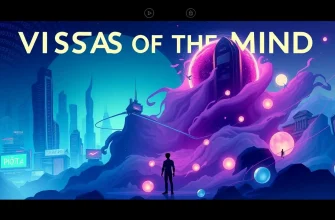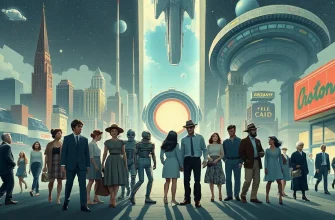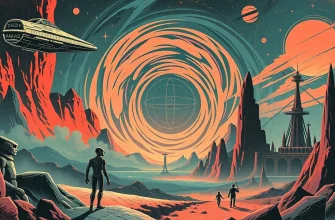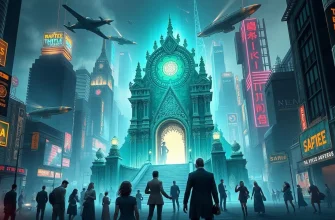The concept of karma, the idea that our actions have consequences that can reverberate through time and space, has long fascinated filmmakers. This curated list of 10 sci-fi films delves into this theme, offering viewers a chance to ponder the moral and ethical implications of our choices. Each film brings a unique perspective on how karma might play out in futuristic or alternate realities, making this collection not only entertaining but also thought-provoking for those interested in the interplay between science fiction and philosophical concepts.

The Matrix (1999)
Description: While not explicitly about karma, the film's exploration of choice, destiny, and the consequences of actions within a simulated reality touches on karmic themes.
Fact: The Wachowskis were influenced by various philosophical ideas, including those from Eastern religions like Buddhism, which includes the concept of karma.
 Watch Now
Watch Now
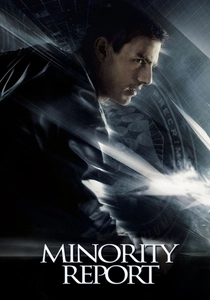
Minority Report (2002)
Description: This film delves into the idea of pre-crime, where individuals are arrested for crimes they are predicted to commit, exploring the karmic implications of preemptive justice.
Fact: The film is based on a short story by Philip K. Dick, who often explored themes of fate and destiny.
 Watch Now
Watch Now
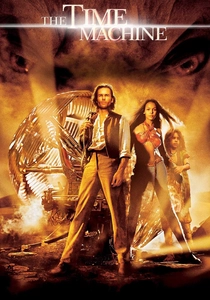
The Time Machine (2002)
Description: While primarily about time travel, the film explores the idea that actions in one time period can have profound effects on the future, akin to karmic consequences.
Fact: The film is a remake of the 1960 film, which itself was based on H.G. Wells' novel, exploring themes of time and causality.
 Watch Now
Watch Now
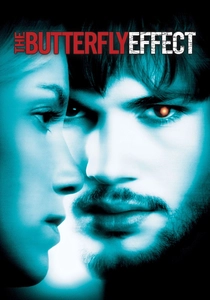
The Butterfly Effect (2004)
Description: Evan Treborn discovers he can travel back in time to his childhood and alter events, but each change has unforeseen consequences, reflecting the karmic principle of cause and effect.
Fact: The film's title refers to the butterfly effect theory, where small changes can lead to significant outcomes.
 Watch Now
Watch Now
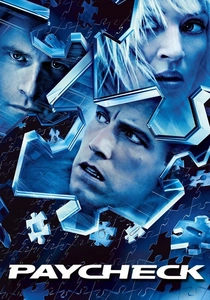
Paycheck (2003)
Description: Michael Jennings, an engineer, finds himself with no memory of the last three years of his life, only to discover that his actions have set off a chain of events with karmic repercussions.
Fact: The film is based on a short story by Philip K. Dick, known for his exploration of fate and destiny.
 Watch Now
Watch Now
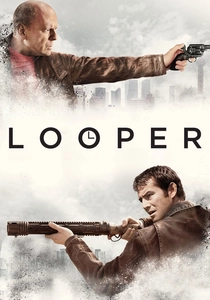
Looper (2012)
Description: In this time-travel thriller, actions taken in the past have direct consequences in the future, illustrating a form of karmic retribution.
Fact: The film's director, Rian Johnson, was inspired by the concept of time travel and its moral implications.
 Watch Now
Watch Now

The Adjustment Bureau (2011)
Description: This film explores the idea of a group of mysterious agents who ensure people follow a predetermined path, which can be seen as a form of cosmic karma. When a man discovers this plan, he fights against it, challenging the very notion of fate and free will.
Fact: The film is based on a short story by Philip K. Dick, whose works often explore themes of fate and destiny.
 Watch Now
Watch Now

The Edge of Tomorrow (2014)
Description: A soldier relives the same day in a time loop, with each iteration offering a chance to change his fate, reflecting the karmic cycle of action and consequence.
Fact: The film is based on the Japanese light novel "All You Need Is Kill" by Hiroshi Sakurazaka.
 Watch Now
Watch Now
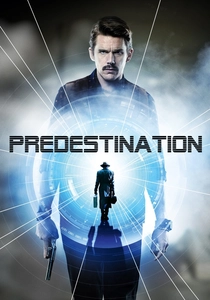
Predestination (2014)
Description: A temporal agent embarks on an intricate series of time-travel missions, where his actions and choices create a loop of karma that he must navigate.
Fact: The film is based on the short story "All You Zombies" by Robert A. Heinlein, which deals with time travel and causality.
 Watch Now
Watch Now
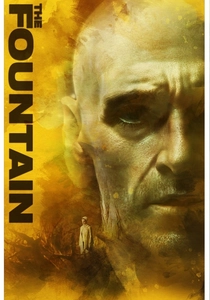
The Fountain (2006)
Description: This film intertwines three stories across different time periods, each exploring themes of love, loss, and the eternal cycle of life and death, which can be interpreted through a karmic lens.
Fact: The film was a passion project for Darren Aronofsky, who spent years developing the script.
 30 Days Free
30 Days Free


